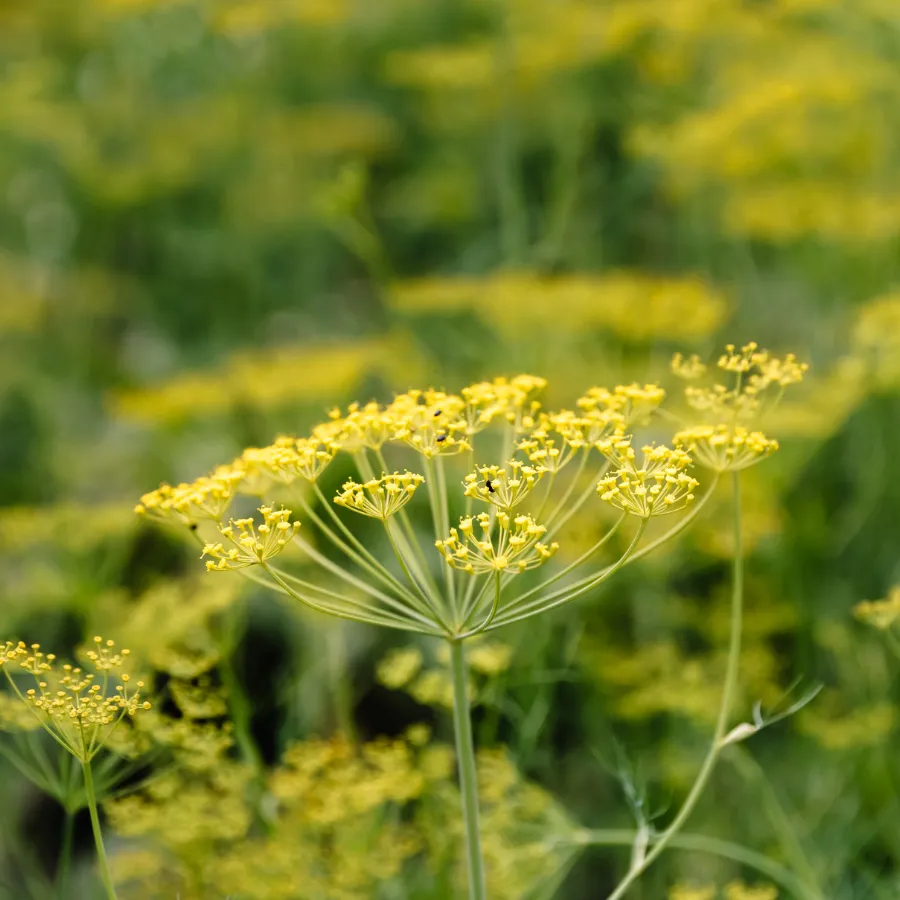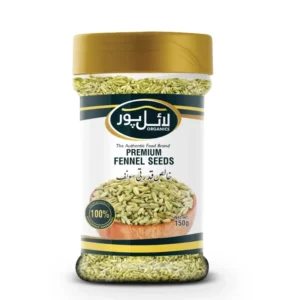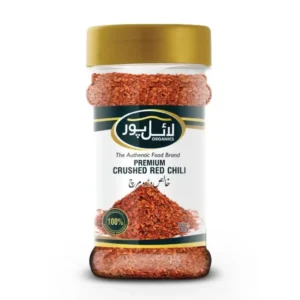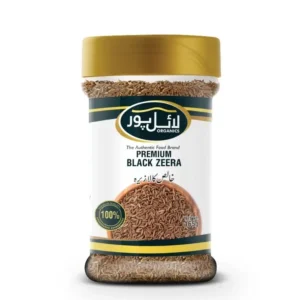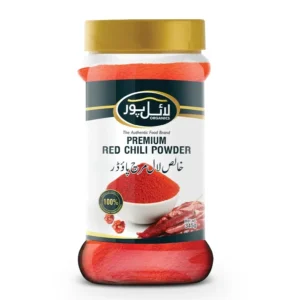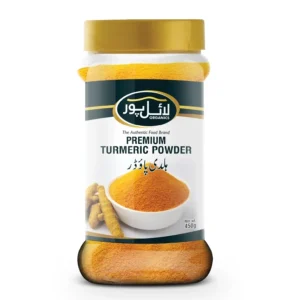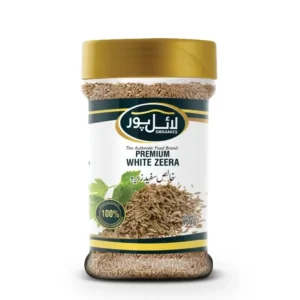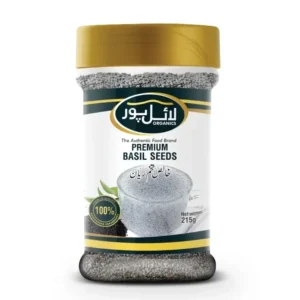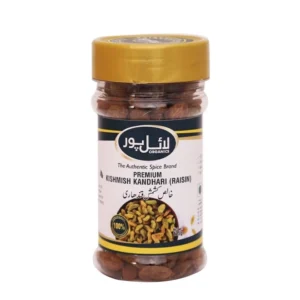Lyallpur Organics Premium Fennel Seed (Khalis Saunf) – 100% Natural Organic & Pure | Rich in Flavor & Aroma
Fennel seeds, also known as saunf in Hindi, are the dried seeds of the fennel plant (Foeniculum vulgare). These tiny, greenish-brown seeds have a sweet, anise-like flavor. These seeds are commonly used in cooking, baking, and even as a natural mouth freshener. They are known for their digestive properties and are often chewed after meals to aid digestion.
History and Origin of Fennel Seeds
Fennel Seeds are native to the Mediterranean region but have spread to many parts of the world. They were highly valued in ancient Greek and Roman cultures and later throughout Europe during the Middle Ages. The Greeks called fennel “marathon,” and it was associated with victory and success, perhaps because the famous battle of Marathon was fought on a field of fennel. These seeds were used for cooking and medicine.
In traditional Chinese and Indian medicine, these seeds have been used to treat various ailments, including digestive and respiratory problems, and promote lactation in nursing mothers. In Ayurveda, fennel is known for its ability to balance the body’s doshas, three energy forces believed to govern health and disease.
Today, these seeds are used worldwide. They are well famous in Indian cuisine and are used in spice blends like garam masala and panch phoron. These seeds are also used in Italian, Middle Eastern, and Chinese dishes.
In traditional Chinese and Indian medicine, these seeds have been used to treat various ailments, including digestive and respiratory problems, and promote lactation in nursing mothers. In Ayurveda, fennel is known for its ability to balance the body’s doshas, three energy forces believed to govern health and disease.
Today, these seeds are used worldwide. They are well famous in Indian cuisine and are used in spice blends like garam masala and panch phoron. These seeds are also used in Italian, Middle Eastern, and Chinese dishes.
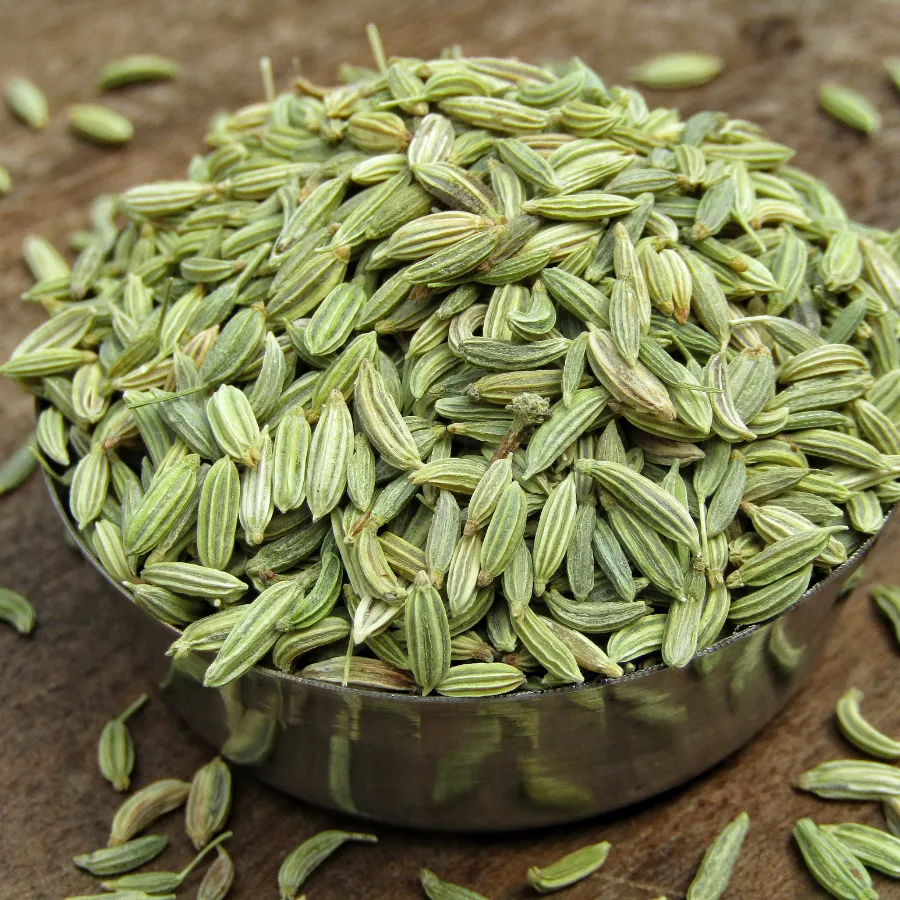
Top Fennel Seeds Products by Lyallpur Organics
Benefits of Fennel Seeds

Anti-inflammatory Properties: The seeds contain antioxidants and anti-inflammatory compounds that help reduce inflammation, potentially lowering the risk of chronic diseases.
Boosts Immunity: The seeds’ vitamin C and other antioxidants strengthen the immune system and help the body fight off infections.
Supports Weight Loss: The fiber content in the seeds can promote a feeling of fullness, thus reducing overall calorie intake and aiding in weight management.
Enhances Skin Health: The antioxidants and vitamins in the seeds can help maintain healthy skin by reducing oxidative stress and promoting collagen production.
Improves Eye Health: These seeds are rich in Vitamin A and other beneficial nutrients for eye health, potentially reducing the risk of age-related eye disorders.
Boosts Immunity: The seeds’ vitamin C and other antioxidants strengthen the immune system and help the body fight off infections.
Supports Weight Loss: The fiber content in the seeds can promote a feeling of fullness, thus reducing overall calorie intake and aiding in weight management.
Enhances Skin Health: The antioxidants and vitamins in the seeds can help maintain healthy skin by reducing oxidative stress and promoting collagen production.
Improves Eye Health: These seeds are rich in Vitamin A and other beneficial nutrients for eye health, potentially reducing the risk of age-related eye disorders.
Hormonal Balance: The seeds have phytoestrogens, which can help balance hormones, particularly in women. They can be beneficial during menstrual cycles and menopause.
Aids Digestion: The seeds are known for their digestive properties. Chewing these seeds after meals helps to reduce bloating, gas, and indigestion.
Improves Heart Health: The high fiber content in these seeds helps reduce cholesterol levels, promoting heart health. Potassium in the seeds helps regulate blood pressure.
Aids Digestion: The seeds are known for their digestive properties. Chewing these seeds after meals helps to reduce bloating, gas, and indigestion.
Improves Heart Health: The high fiber content in these seeds helps reduce cholesterol levels, promoting heart health. Potassium in the seeds helps regulate blood pressure.
Nutritional Composition of Saunf per 100g
Macronutrients
Calories: 345 kcal
Protein: 15.8 g
Fat: 14.9 g
Carbohydrates: 52.3 g
Vitamins
- Vitamin C: 21 mg (35% of Daily Value)
- Vitamin A: 7 µg (1% of Daily Value)
- Vitamin E: 2.0 mg (10% of Daily Value)
- B Vitamins (Thiamin, Riboflavin, Niacin, Vitamin B6, Folate)
Minerals
- Calcium: 1196 mg (120% of Daily Value)
- Iron: 18.5 mg (103% of Daily Value)
- Magnesium: 385 mg (96% of Daily Value)
- Phosphorus: 487 mg (49% of Daily Value)
- Potassium: 1694 mg (48% of Daily Value)
- Sodium: 88 mg (4% of Daily Value)
- Zinc: 3.7 mg (25% of Daily Value)
- Manganese: 6.5 mg (325% of Daily Value)
- Copper: 1.1 mg (55% of Daily Value)
- Selenium: 5.0 µg (7% of Daily Value)
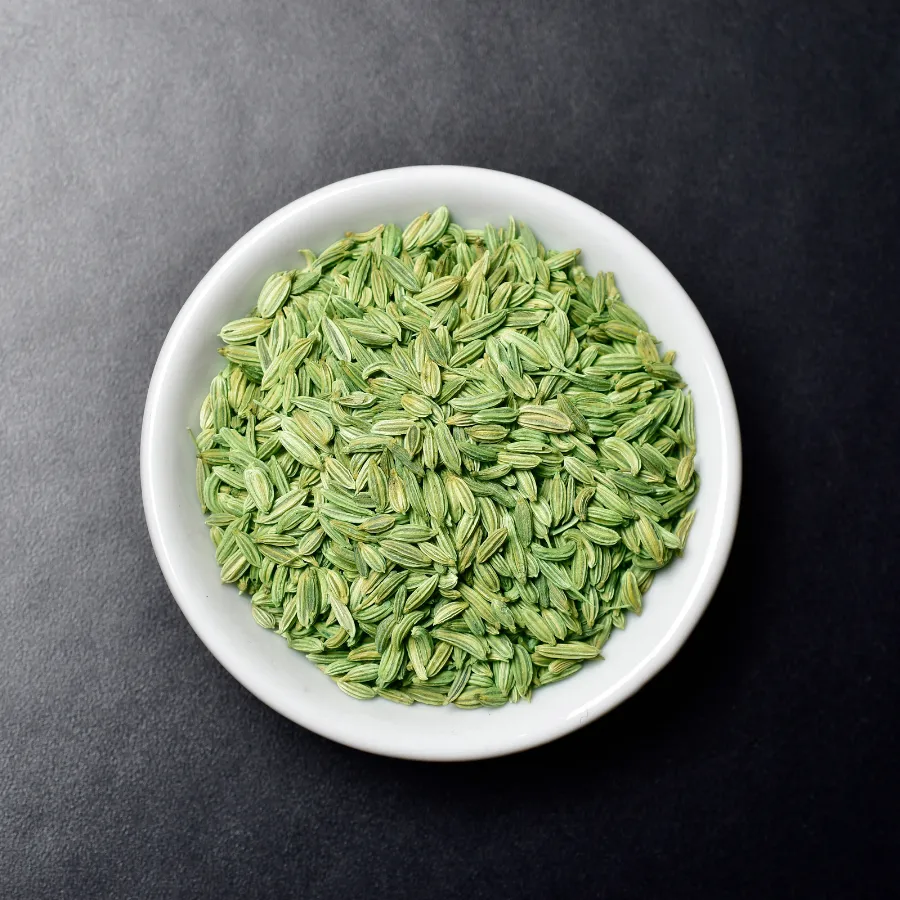
Different Types of Saunf
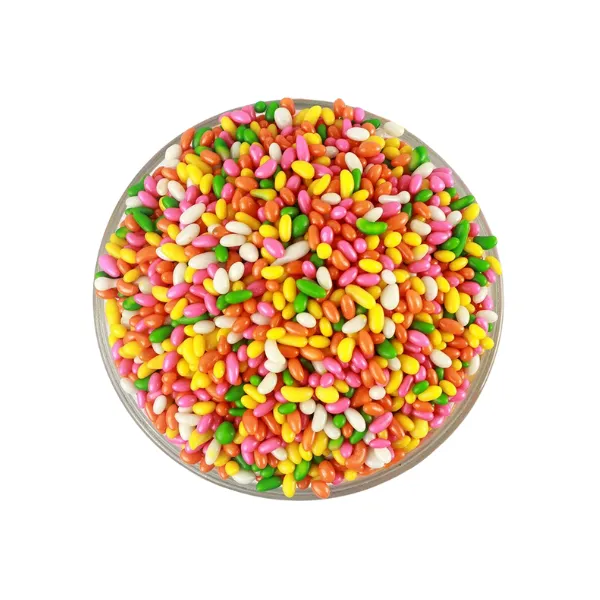
Sweet Fennel Seeds
These seeds are the most commonly used variety in cooking. They have a mild, sweet flavor with a hint of anise, making them popular in Indian cuisine, baking, and as a natural mouth freshener.
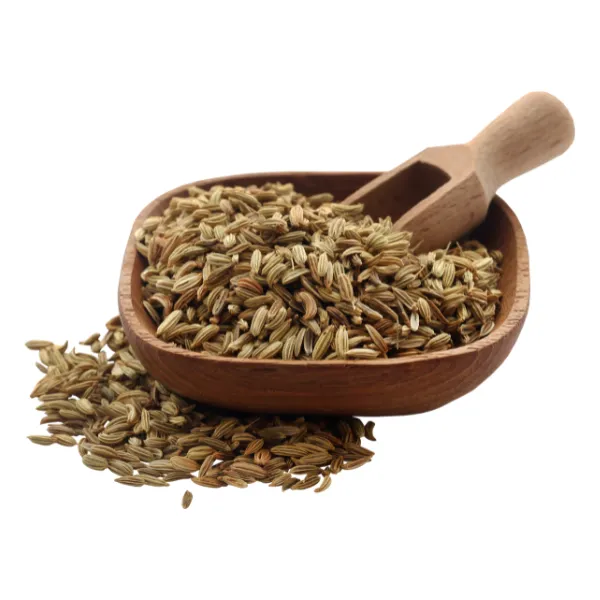
Bitter Fennel Seeds
Seeds have a more intense and slightly bitter flavor than sweet ones. They are often used to produce fennel oil and traditional medicines but are less common in everyday cooking.
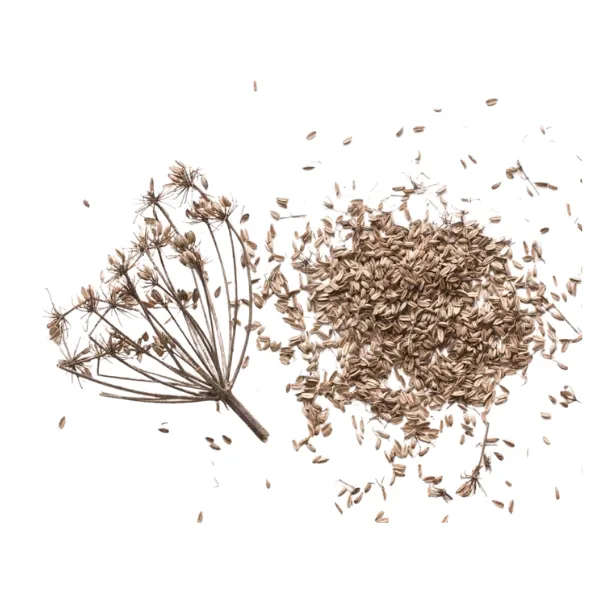
Wild Fennel Seeds
These seeds are smaller and have a more rich flavor. They are used in specific regional cuisines and for medicinal purposes. They are often found in the wild and are not available commercially.

Roasted Fennel Seeds
These seeds are regular saunf that have been dry-roasted. The roasting process enhances their flavor, giving them a nutty taste. They are commonly used as a digestive aid and mouth freshener after meals.
Different Forms and Uses of Saunf
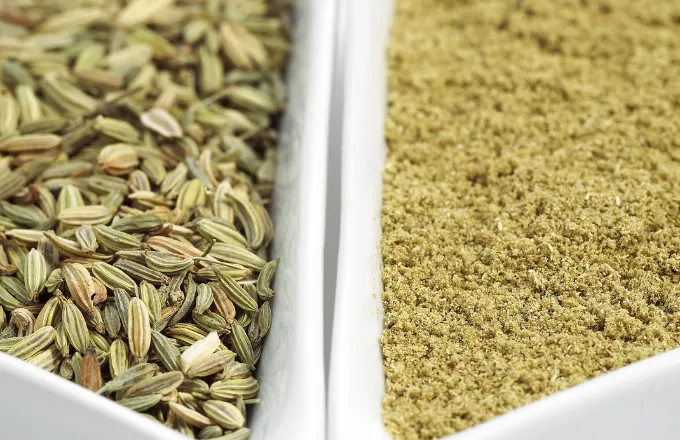
Powder
The seeds powder is made by grinding whole fennel seeds into a fine powder. This form conveniently adds spice blends, curries, and baked goods.
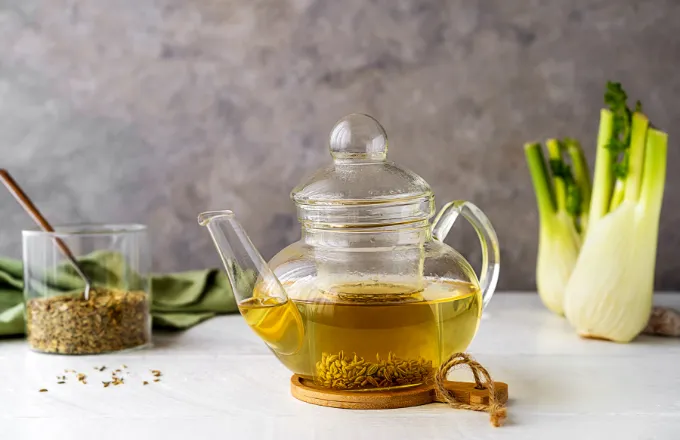
Tea
The tea is made by steeping saunf in hot water. This herbal tea is known for its soothing effects on digestion and is often consumed to relieve bloating and gas.
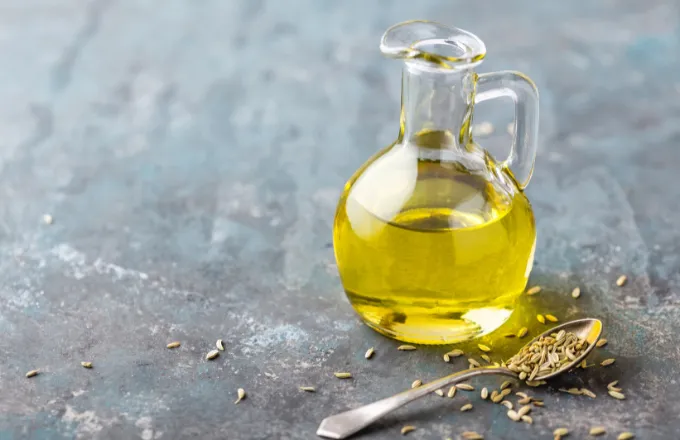
Oil
It is extracted through steam distillation of fennel seeds. It is used in aromatherapy, cosmetics, and traditional medicine due to its concentrated compounds, like anethole.
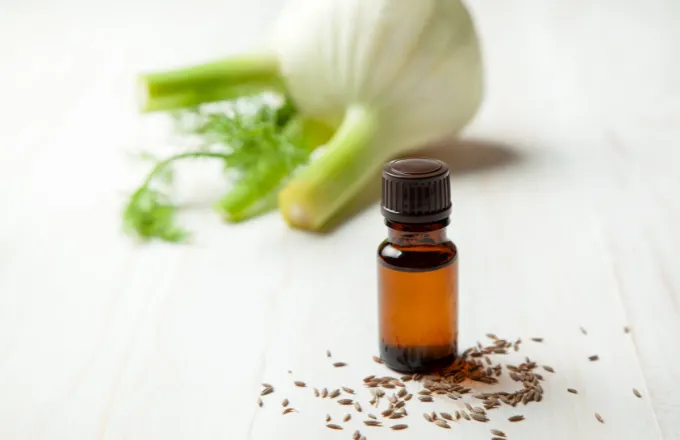
Extract
The seed extract is a concentrated form of the seeds, often used for health benefits. It can be found in dietary supplements and natural remedies.

Capsules
The seed capsules are a suitable way to consume fennel for its health benefits. These dietary supplements are often taken to support digestive health.
Fennel Seeds in Cooking
The seeds, with their sweet and slightly licorice-like flavor, are widely used in subcontinental and Pakistani cuisine. They are used in various dishes to enhance the flavor and add a unique, fragrant quality.
Subcontinental and Pakistani Recipes
Panch Phoron: A traditional Bengali five-spice blend that includes saunf, which is used to season vegetables, lentils, and fish dishes.
Saag Gosht: A classic dish made with lamb and spinach, seasoned with various spices, including fennel seeds, for added depth of flavor.
Garam Masala: A popular spice blend in many Pakistani dishes, it includes ground saunf and other spices like cumin, coriander, and cardamom.
Mutton Korma: A rich and creamy curry made with mutton, yogurt, and a blend of spices, including fennel seeds, provides subtle sweetness.
Chai Masala: The seeds are a vital ingredient in the spice mix used to make traditional masala chai.
Achari Chicken: A tangy and spicy dish with pickling spices, including fennel seeds, gives it a distinctive taste.
Biryani: The seeds are often added to the spice mix in biryani, a fragrant rice dish with meat or vegetables.
Raita: A cooling yogurt-based side dish often flavored with saunf powder, mint, and other spices, perfect for accompanying spicy dishes.
Saag Gosht: A classic dish made with lamb and spinach, seasoned with various spices, including fennel seeds, for added depth of flavor.
Garam Masala: A popular spice blend in many Pakistani dishes, it includes ground saunf and other spices like cumin, coriander, and cardamom.
Mutton Korma: A rich and creamy curry made with mutton, yogurt, and a blend of spices, including fennel seeds, provides subtle sweetness.
Chai Masala: The seeds are a vital ingredient in the spice mix used to make traditional masala chai.
Achari Chicken: A tangy and spicy dish with pickling spices, including fennel seeds, gives it a distinctive taste.
Biryani: The seeds are often added to the spice mix in biryani, a fragrant rice dish with meat or vegetables.
Raita: A cooling yogurt-based side dish often flavored with saunf powder, mint, and other spices, perfect for accompanying spicy dishes.

Other Top Products By Lyallpur Organics
Buying and Storing Fennel Seeds
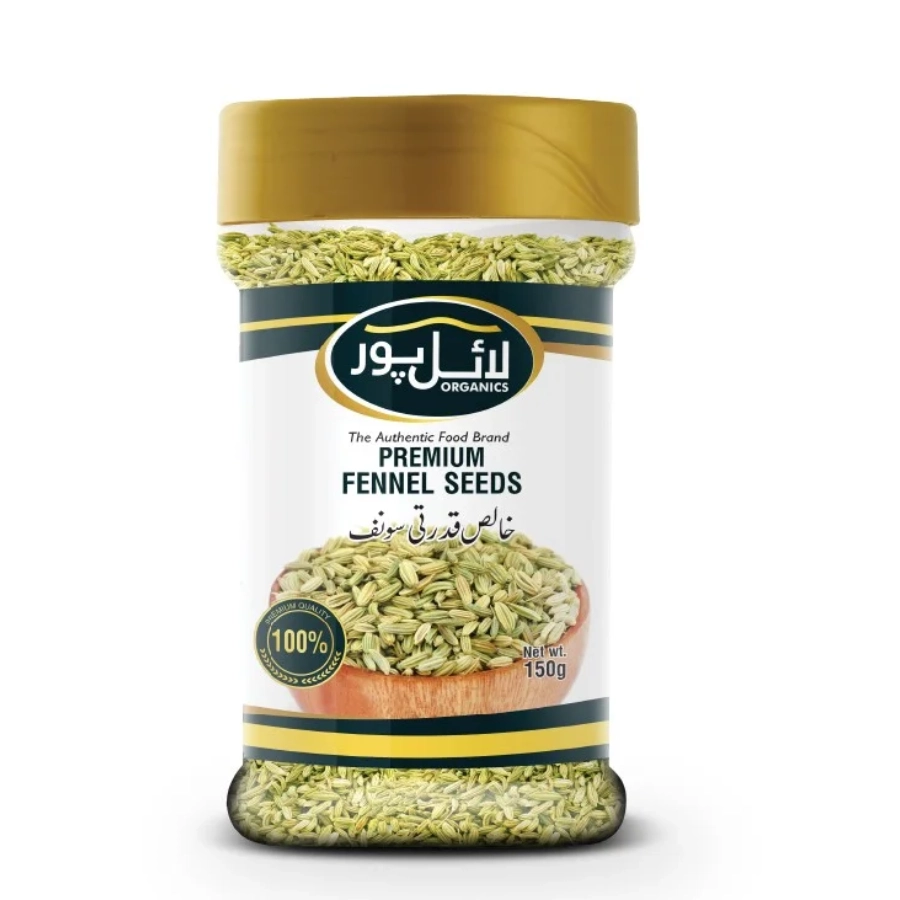
When purchasing saunf, it’s important to consider the following factors to ensure you get the best quality:
- Color and Appearance: Choose bright green saunf to indicate freshness. Avoid dull or grayish seeds.
- Fragrance: The fresh seeds should have a strong, sweet, licorice-like smell. Lack of scent may indicate staleness.
- Source: Purchase from reputable sources such as Lyallpur Organics.
- Packaging: Ensure airtight packaging to maintain freshness.
Proper storage of fennel seeds is crucial to maintain their flavor and potency over time. Here are some tips:
- Airtight Containers: Store the seeds in airtight containers, such as glass jars with tight lids.
- Cool, Dark Place: Keep containers in a cool, dark place like a pantry or cupboard to prevent loss of flavor.
- Whole vs. Ground: Whole seeds retain their flavor longer than ground seeds. If you need ground fennel, it’s best to grind the seeds as needed.
- Shelf Life: Whole fennel seeds can last up to a year; ground seeds stay fresh for about six months. Check for smells or signs of spoilage before use.
Cultivation of Fennel Seeds
- Saunf grows best in well-drained, loamy soil with a pH of 6.0 to 7.0.
- Thrives in temperate climates with sunny locations, cool winters, and warm summers.
- Direct sow seeds 1/4 inch deep and 12 inches apart, with rows spaced 18-24 inches apart after the last frost.
- Seeds typically germinate within 7-14 days; keep the soil moist but not waterlogged.
- Thin seedlings are 12-18 inches apart once they are a few inches tall.
- Water regularly to maintain consistent soil moisture, but avoid overwatering.
- Apply balanced fertilizer or compost at planting and during the growing season.
- Keep the area free of weeds.
- Harvest seeds 90-120 days after planting, when flower heads turn brown and dry.
- Dry flower heads in a paper bag in a cool, dry place, then shake to release seeds.
- Ensure seeds are thoroughly dried before storing them in an airtight container in a cool, dark place.
